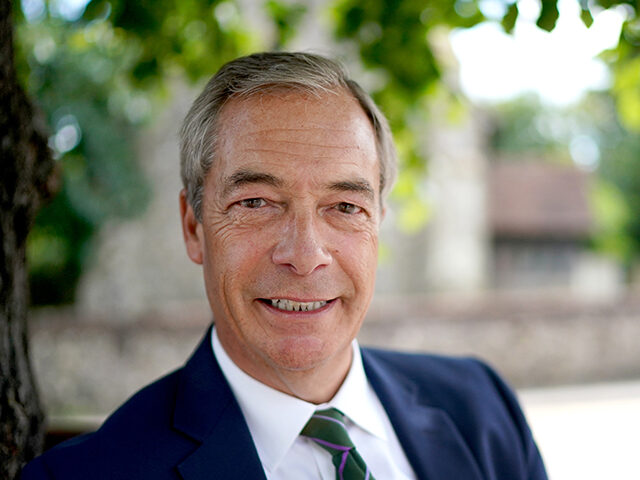The CEO of Coutts, the exclusive bank that terminated Nigel Farage’s accounts for political reasons has said he bears “ultimate responsibility” and is consequently resigning, the second top banking figure to go over the Farage scandal in as many days.
The consequences for the politicisation of banking, manifesting itself as the debanking of Brexit leader Nigel Farage for his views, friendships, and Twitter usage, continue, with a second bank CEO resigning in two days.
It was only a matter of time before Peter Flavel, Coutts CEO, stood down.
The ultimate responsibility for the dossier de-banking me for my political views lies with him.
I even wrote to Mr Flavel twice before going public and didn’t receive an acknowledgment.
— Nigel Farage (@Nigel_Farage) July 27, 2023
Peter Flavel, the now former boss of Coutts, the prestigious bank which terminated Farage’s business and personal accounts and which is a part of the NatWest Group said that while he was “exceptionally proud” of his leadership of Coutts, nevertheless “we have fallen below the bank’s high standards of personal service” and that “As CEO of Coutts it is right that I bear ultimate responsibility for this, which is why I am stepping down.”
The move may be part of a damage limitation and clearing-out exercise by the interim CEO of NatWest Group Paul Thwaite, who was appointed yesterday after Dame Alison Rose fell on her sword over the same debanking scandal. The Guardian reports Thwaite said “I have agreed with Peter Flavel that he will step down as Coutts CEO… I believe this is the right decision for Coutts and the wider Group.”
Farage had previously called on both to resign, citing their involvement in his debanking, as well as aggressive briefing against him including the leaking of personal information to the BBC when he brought his situation to public attention in the media. He has also called for Howard Davies, the chair of the Natwest board, and the remaining members of the board to resign, given they initially backed the now-departed Dame Alison, as well as led and condoned the internal culture at the bank.
Debanking: No Return to Politics, But a Crusade Against Cashless Society, Says Farage https://t.co/GtvUzGUply
— Breitbart London (@BreitbartLondon) July 27, 2023
The resignation-cum-firing of Dame Alison has been reported to have been at the urging of the government. While it is not usually in the government’s gift to hire and fire the leadership of major banks, the UK is the majority shareholder of NatWest — including Coutts — after bailing it out to the tune of £45 billion during the 2008 financial crash.
This is bad news for chairman of the board, given the Prime Minister was asked today whether he supported Davies staying in post, and refused to back the top banker. It is possible further resignations may therefore follow.
The controversy around the bank’s politicising of personal finance and the consequences following that have had a major impact on its share price, NatWest Group’s stock value having collapsed yesterday morning before falling further today. The tumble has wiped hundreds of millions of pounds off the bank’s value.
Nigel Farage first revealed that he was being subjected to a campaign of debanking last month, saying his present provider was severing ties without offering an explanation why and that every other bank he had approached — ten in all — also refused to allow him to open personal and business accounts. Farage surmised this was a political move against him, and although briefings in the press against him by his own bank Coutts claimed the real reason was financial, as he was simply too poor to bank with them, it was later comprehensively proven the real reason was indeed political.
Farage was able to use the Subject Access Request legal mechanism to force the bank to surrender the documents it held on Farage, which showed Farage had been declared a persona non grata for Brexit, his friendship with President Trump, and even his retweeting of a joke by comedian Ricky Gervais.
Some of the claims against him were quite personal, including calling him a xenophobic racist, and a “disingenuous grifter”. Farage has decried them as being shocking and vitriolic, and has received an apology.
Bank Execs ‘Read Riot Act’ as UK Govt Looks Outlaw Political Debanking in Farage Fallout https://t.co/rpBXPPa5XB
— Breitbart London (@BreitbartLondon) July 27, 2023

COMMENTS
Please let us know if you're having issues with commenting.